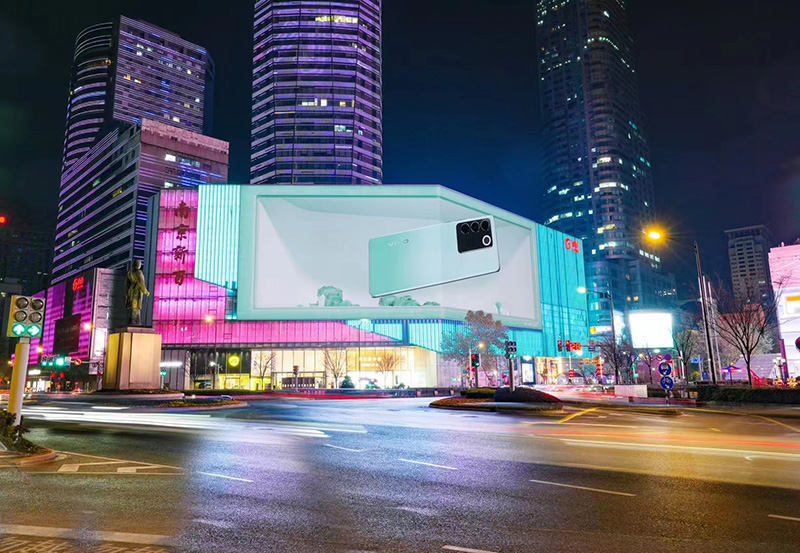Amid the digital transformation sweeping across industries, outdoor advertising is evolving from "passive display" to "active interaction" through intelligent upgrades. By deeply integrating AI passenger flow analysis systems with full-color LED displays, advertisers have for the first time achieved real-time audience perception and dynamic content adaptation, offering a revolutionary solution to boost ad conversion rates.

I. AI Redefines the Value Proposition of Outdoor Advertising
Traditional outdoor advertising has long struggled with vague effectiveness evaluation, but AI technology has fundamentally transformed this landscape. Equipped with embedded visual sensors and edge computing modules, LED screens can now capture critical metrics such as crowd density, dwell time, and movement trajectories in real time. Deep learning algorithms automatically generate audience profiles, identifying demographic characteristics (e.g., age distribution, gender ratio) and even analyzing behavioral patterns to infer potential consumer intent—providing data-driven decision-making for smart ad scheduling.
II. Dynamic Ad Delivery Achieves "Personalized Screens"
Leveraging AI-generated passenger flow insights, advertisers can implement flexible strategies:
1. Time-Based Optimization: Automatically display fast-food ads during rush hours, office services at noon, and entertainment content in the evening.
2. Contextual Adaptation: Show educational ads when parent-child groups are detected and premium products for business audiences.
3. Enhanced Interaction: Trigger AR scans or instant coupon distribution when prolonged viewer engagement is detected.
This closed-loop system of "environment sensing → content matching → feedback analysis" transforms each screen into an intelligent, self-evolving media node.
III. Commercial Value Behind Technological Advancements
Compared to traditional static ads, the AI-driven dynamic system delivers three breakthroughs:
Higher Conversion: Content tailored to audience needs significantly reduces ad avoidance.
Cost Efficiency: Eliminates wasted impressions by targeting high-value time slots and demographics.
Data Assets: Accumulated passenger flow reports provide long-term strategic references.
Industry experts highlight that this "screen-edge intelligence" model represents the future of outdoor advertising—no longer just a physical display medium but a digital infrastructure integrating perception, computation, and interaction. With 5G adoption and advancing algorithms, applications will expand to commercial district traffic management, urban governance, and beyond.